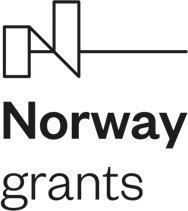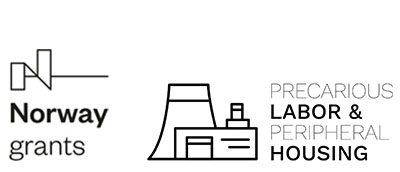Press Releases

PRESS RELEASE
4/2022
31.07.2022
Data on the ethnicization of work processes in the area of Maramureș county are being processed by the project team “Precarious work and peripheral housing”, financed by the Research Program associated with Norwegian Grants. The researchers managed to gather, up to this moment, when the project is in the middle of the term, a lot of data about the research area addressed.
The incorporation and racialization of labor in the new economy:– Identifying the main forms of employment in the region by statistically analyzing data of the National Statistics Institute and of its Maramureş county branch. – – Analyzing and assessing work and social relations used by Roma and non-Roma workers to make ends meet by interviewing workers and their kindred.– Ethnographic research on: a) the economic genealogy of the Roma ghettos, the role their professional specialization during communism played in the economic restructurings that took place during the early post-communist de-industrialization period; b) the impact of structural poverty on inter-generational (im)mobility
– Analysis of secondary statistical data on territorial development in Baia Mare and Maramureş county and on the historical evolution of the housing stock and residential districts in Baia Mare– Analysis of the changes in local urban development policies during the three waves of transformations (socialist, post-socialist, neoliberal capitalist)
– Cases studies of industrial plants (Aramis/Italsofa and Habitex) to trace the history of the companies, labor recruitment strategies, labor management, working
– Statistical analysis of available data on migration, demographic data, county level economic data.
– Archival research on the labor and housing conditions for Roma in Baia Mare and oral history interviews
– Archival research on housing policies since late socialism
– Archival research of the conditions of Roma incorporation in the labor force during socialism and early de-industrialization period (SR2) and 5 oral histories on labor trajectories.
The team has so far produced three podcasts that can be listened to on this site, under Press releases button.
 PRESS RELEASE
PRESS RELEASE
3/2022
29.04.2022
The last 12 months of the PRECWORK research project have focused on an extensive collection of ethnographic material, sociological data, and archival material related to the issue of precarious labor and peripheral housing in the county of Maramures. In spite the Covid-19 Pandemics we managed to start the fieldwork as planned and we managed to collect much more data than we initially planned.
Each WP-team made several trips to Baia Mare, but also to other cities from the county of Maramures, such as Baia Sprie, Sighetu Marmatiei, Targu Lapus, Seini, and most of all, to the majority of villages that have a high proportion of Roma population.
During the fieldwork stage we have organized a student fieldwork practice as well in which we involved several students from the Faculty of Sociology and Social Work. The main goal of this fieldwork practice was to familiarize students with what sociological and anthropological research means, but also to show them real life situations regarding marginality and the way this is intertwined with sociological and anthropological processes.
In this period the research has mainly focused on the following issues.
- We have researched the Romanian macro-economic transformations in Romania and in the county of Maramures and their impact on contemporary re-industrialization strategies employed by the local administration.
- We have analyzed the economic transformations that took place during the 90’s and the role these reforms had on the formation of racialized ghettos at the margins of cities.
- We have also explored the issue of uneven territorial development, urban planning and housing inequalities and the way they connect with gentrification processes.
- Another important focus of our research was the degradation of work and pay conditions of precarious people and the transformations of industrial labor.
- We have tried to connect all this with the research of the vast fluxes of internal and external migration that took place in this area and the structural mechanisms that generated this.
- Our research gives also an important attention to the archival materials and the way housing and industrial policies are intertwined during the communist periods. Additionally, we have completed a small-scale survey in the city of Baia Mare focusing on the precarious populations living in the peripheral neighborhoods of the city.
The research is closely coordinated with our Norwegian partner who focuses on the migration of precarious people from Romania to Scandinavian countries. The next phase of our research project will focus on analyzing and interpreting the vast data we have collected and on the early dissemination of our findings in international conferences and workshops. Our goal is to draw attention to our research findings and connect with a network of scholars that are interested in similar issues.
 PRESS RELEASE
PRESS RELEASE
2/2021
31.03.2021
A team of sociologists from Babeș-Bolyai University (UBB) had a recent meeting with the representatives of different local institutions from Maramureș County to discuss the collaboration in the project „Precarious work and peripheral housing”, with EEA and Norway Grants.
The project is an innovative one and it studies the process of de-industrialisation that took place in Romania at the beginning of the ’90s and the social and economic impact over the population.
This first meeting was on opportunity to present the project and it was also a chance of exchanging ideas between the two parties. They discussed the people ways of live from Maramureș during the period of industrialisation and de-industrialisation and they also talked about the politics of regional development.
Another subject reffered to reindustialisation, the situation of main local employers as well as the effort to make the switch towards “green” industry.
The guests underlined the importance of culture and “creative” investors for the economic development of the city and county. During the meeting they emphasized the poor reglementation of the process of urbanisation, including informal villages and peripheral social and economic areas.
It was also discussed the posibility of collaboration with the local authorities on the next strategy regarding the development of the city. At their turn, local representatives showed their support in this process giving acces to the UBB team to archives and other informative material.
In this phase of the project the team organize some research visits in neighbourhoods from Baia Mare and mono-industrial localities or industrialised spaces from Maramureș County. The purpose of the visits was to identify the most important social and economic problems of the region.
The local institutions that took part at this meeting were: representants of Maramureș County Council from Direction of Development and Project Implementation, Direction of Chief Architect, the Compartment of Territorial Development, from Social and Economic Direction and from Public Service of Urban Ambient of the Town Hall of Baia Mare.

PRESS RELEASE
1/2020
28.12.2020
Experts from FAFO and Babeș-Bolyai University have launched at the end of this year an innovative research project focusing on the process of de-industrialization that took place in Romania at the beginning of 1990 and on the long-term social and economic impact this had on the general population in the past few decades. The title of the research project is: ‘Precarious labor and peripheral housing: the socio-economic practices of Romanian Roma in the context of changing industrial relations and uneven territorial development’. The research team is a multi-disciplinary one with sociologists, anthropologists, economists and historians from Romania and Norway. The Romanian research team is coordinated by Prof. Univ. Dr. Eniko Vincze and the Norwegian team by Dr. Jon Horgen Friberg, a research professor and acting research director at Institute for Labour and Social Research. This project is financed by EEA and Norway Grants and the Romanian Government and has a duration of three years (2020 – 2023).
The research focuses on the northern part of Romania, especially on the Maramureș region and the city of Baia Mare. During the socialist period this was one of the most important centers for processing non-ferrous metals (gold, zinc, led, copper), that was connected to numerous mine exploitations from the region. At the beginning of 1990, because of privatization and economic restructurings, a big economic collapse of the region followed. The research project analyzes the living and working conditions of the population living in this area and the ways in which it was affected by these transformations. This generated big flux of migration, including to Scandinavian countries.
An important theme of research constitutes the investigation of industrial relations and the phenomenon of unequal development that resulted from the economic reforms and shock therapies applied to the Romanian industries. The project analyzes the forms of precarity that emerged after de-industrialization and the way this contributed to the formation of ghettos at the margins of cities. Special attention will be given as well to fluxes of internal and trans-national migration due to economic precarity. In the last decade a process of re-industrialization and economic revitalization of the region took place and also it was transformed into a hub for foreign direct investments. In this regard, the project aims to analyze the ways in which the precarious segment of the population is integrated into the new economy of the city.
The novelty of this research project is the attempt to connect the analysis of industrial relations with the perspective of racialized poverty of Roma during the transformations that took place in the field of work, housing and migration. The project aims, as well, to generate specific public policies proposals that can contribute to social inclusion and sustainable urban development.






